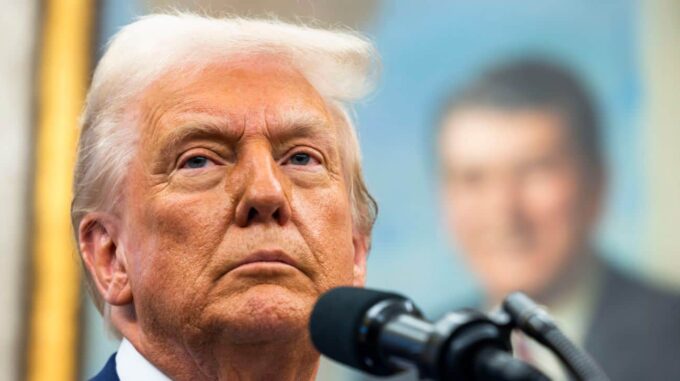U

S. President Donald Trump made a high-profile statement regarding new, stricter measures against countries and companies that purchase Iranian oil. In his post on the platform Truth Social, he announced plans to implement secondary sanctions, which effectively mean expanding economic pressure on Tehran and holding foreign entities accountable for continuing to buy Iranian oil despite sanctions. According to Trump, any individual or legal entity that imports any amount of Iranian oil or petrochemical products will automatically be subject to "secondary sanctions." This will significantly limit their ability to conduct business in the United States or to use American financial, commercial, and other resources. The former U.S. president’s statement has become one of the most decisive in the context of current policy toward Iran and aims to cut off the country’s main source of income — oil sales. This marks an escalation of American pressure on Tehran, which Washington is engaged in tense negotiations with over the nuclear program. Currently, these diplomatic efforts have reached a deadlock, as the next round of consultations between the U.S. and Iran has been postponed due to logistical difficulties, as reported by EuroPravda. The American administration insists that Iran give up its intentions to develop nuclear weapons and cease uranium enrichment. However, Tehran insists it has no intention of agreeing to dismantle its centrifuges or to reduce uranium enrichment levels below the limits set in the 2015 agreement. Iranian representatives have repeatedly stated that they will not freeze or destroy their nuclear stockpiles and consider such conditions unacceptable. Meanwhile, diplomatic circles are observing a certain interest in new formats of negotiations. According to reports, representatives of France, the United Kingdom, and Germany — key participants in the 2015 nuclear deal — have agreed to a new meeting with Tehran ahead of the next round of consultations between Iran and the U.S. They aim to find a diplomatic way to de-escalate the current tensions in Washington-Tehran relations and hope to return to the implementation of the agreement's provisions or reach a diplomatic resolution. The currency sanctions imposed by Trump, along with the blocking of financial flows, have a significant impact on Iran’s economy, which already feels the effects of these measures — limited oil exports, declining foreign reserves, and reduced domestic income. At the same time, Iran continues to insist on its right to maintain nuclear facilities and resources, complicating the search for a compromise and the return to the international agreement. Thus, the current phase of diplomatic negotiations with Iran is characterized by high tension and increasing risks for regional stability. The introduction of secondary sanctions and calls for international partners to halt purchases of Iranian oil reflect U.S. efforts to intensify economic pressure and force Tehran to make concessions, which currently seems extremely challenging. The global community is watching developments with hope, as the outcome will influence not only security in the Middle East but also the global stability of energy resources.

